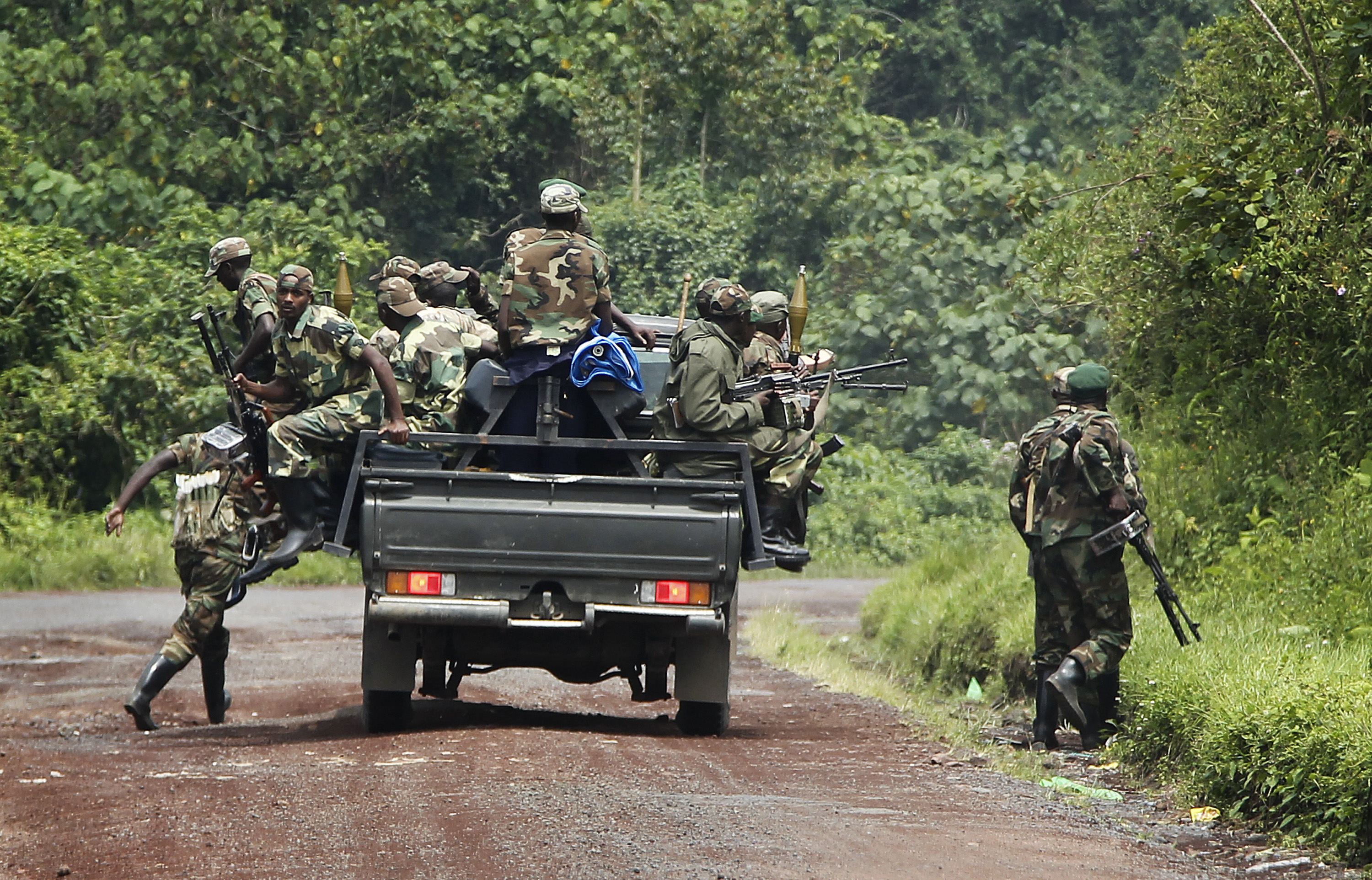
Last week, on November 20, the M23 rebels seized Goma, a major city in eastern Congo, escalating the ongoing conflict and highlighting the urgency for a credible peace process. Over the weekend, the International Conference on the Great Lakes Region, or ICGLR, met in Kampala for a high-level crisis summit—attended by the presidents of Congo and Uganda as well as by representatives of the M23—to discuss the increasing crisis.
As a result from the deal brokered between President Musevini of Uganda, President Kabila of Congo and representatives from the M23, the latter pledged to pull out of Goma by Friday, Novermber 30. However, early today the M23 announced that they would delay their withdrawal by 48 hours and currently remain in control of the strategic city. Even if the rebels do pull out of Goma; however, they have given no indication of plans to end their eight-month insurgency.
It has never been more clear that in order to resolve this conflict and bring an end to the cyclical regional fighting, a broadened peace process is needed that is inclusive of all parties and stakeholders. The regional process underway, without transparency or the support of local leaders and civil society, will likely result in a repeat of past agreements providing for a short-term security deal that maintains the status quo and does not address underlying drivers propelling conflict in the region.
A new Enough Project policy brief released today highlights this need for a broadened, more inclusive peace process that would be jointly mandated by the U.N., African Union, and the ICGLR. It is the first in a three-part series on the process, leverage, and substance necessary to create a path towards peace in eastern Congo and the surrounding region.
By expanding the existing process to include the U.N. and African Union, mutual mistrusts that have continually perpetuated conflict in the region can be addressed. Further, the U.N. Group of Experts has linked the governments of Rwanda and Uganda to support for the M23, which undermines the current process led by Ugandan President Yoweri Museveni, the ICGLR chairman.
"The political, security, and economic drivers of this conflict have led to repeated outbreaks of fighting since 1996,"said Aaron Hall, co-author of the report and Enough Project Associate Director of Research. "The acronyms of the armed groups might change with each outbreak, but the causes and results are the same. If the cycle of foreign intervention in eastern Congo is not broken, there is no chance for peace in the region."
The brief argues that regional and international stakeholders must more directly engage in supporting a peace process that includes a balance between constructive and coercive leverage to provide the necessary incentives and pressures for compromise between the conflicting parties. It emphasizes the need for a process to focus on an immediate cessation of hostilities, but also address the root causes of conflict to promote a long-term solution and sustained peace for the region.
The U.S. government should also step up its efforts in support of ending the escalating crisis. Since the fall of Goma last week, U.S. Assistant Secretary of State for African Affairs Johnnie Carson has been in the region holding discussions with leaders to help bring about a ceasefire. This is a first step toward engagement, but the U.S. should push for a more inclusive and credible peace process that would include the U.N. and African Union. The Obama administration should also appoint a Presidential Special Envoy to help support the process and guide a sustained peace in the Great Lakes region.
Read the full brief: "A Broadened Peace Process Is Needed in Congo"
TAKE ACTION: The U.S. government can help end the crisis. We need to encourage the White House to speak out against this rebellion. Send this letter Denis R. McDonough, the White House’s deputy national security advisor, and ask him to speak out against the M23 and for the people of eastern Congo.
Photo: M23 rebel soldiers in Congo (AP)

